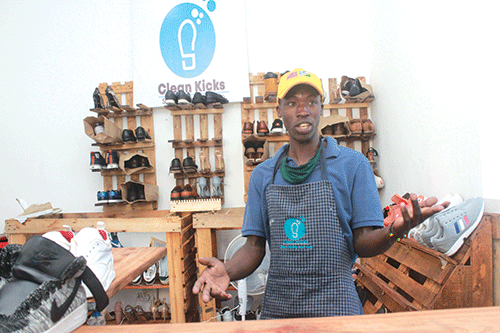Government’s relaunched initiative started supporting the growth and sustainability of small and medium enterprises (SMEs), with over N$350 million or 70%, disbursed across the country.
The central bank governor, Johannes !Gawaxab, shared this data yesterday.
In November 2020, the Bank of Namibia (BoN) launched a Covid-19 SME Loan Scheme, with N$500 million accessible to SMEs through participating banking institutions.
Participating banks are Standard Bank, Bank Windhoek, Development Bank of Namibia, Nedbank and First National Bank.
However, since the scheme’s inception, only N$6.4 million was utilised for this purpose at the beginning of 2023. The low uptake birthed the relaunch of the scheme in February 2023 after consultations to gauge the challenges the SMEs were facing with regard to qualifying for and accessing the scheme. The scheme has since been renamed the SME Economic Recovery Scheme.
“Of the N$500 million, N$350 million has been disbursed, and there is a pipeline of about N$40 million. We decided to notify the nation on which banks still have the facility. We are trying to help the nation. Our core responsibility as far as credit is concerned is making sure that it is affordable and economic activities are going on and we supervise the banks to make sure that the system is sound and stable,” explained !Gawaxab.
As per BoN guidelines, SMEs can request loans from N$50 000 to N$10 million. The loans are distributed at a rate equivalent to the current prime-lending rate, with a reduction of 50 basis points and less stringent conditions. The loans aim to assist businesses in paying for operational expenses, such as salaries, rent and lease agreements, as well as contracts with suppliers.
Small and medium enterprises remain the lifeblood of many countries, as they continue to play a crucial role in stimulating economic activity. In fact, SMEs account for the majority of businesses around the world and are important contributors to job creation and economic development.
Repo rate maintained
At the same occasion, the governor announced that the monetary policy committee decided to keep the repo rate unchanged at 7.75%. As such, the prime lending rate remains steady at 11.50%.
“The committee noted the continued disinflation both globally and domestically, with real interest rates remaining positive, and slow credit growth, amid a fair level of international reserves, the MPC decided to maintain the repo rate at its current level. This policy stance will continue to safeguard the one-to-one link between the Namibia Dollar and the South African Rand and support domestic economic activity,” he explained yesterday.
Repo rate is the rate at which the central bank of a country lends money to commercial banks in the event of any shortfall of funds. Repo rate is used by monetary authorities to control inflation. -mndjavera@nepc.com.na



